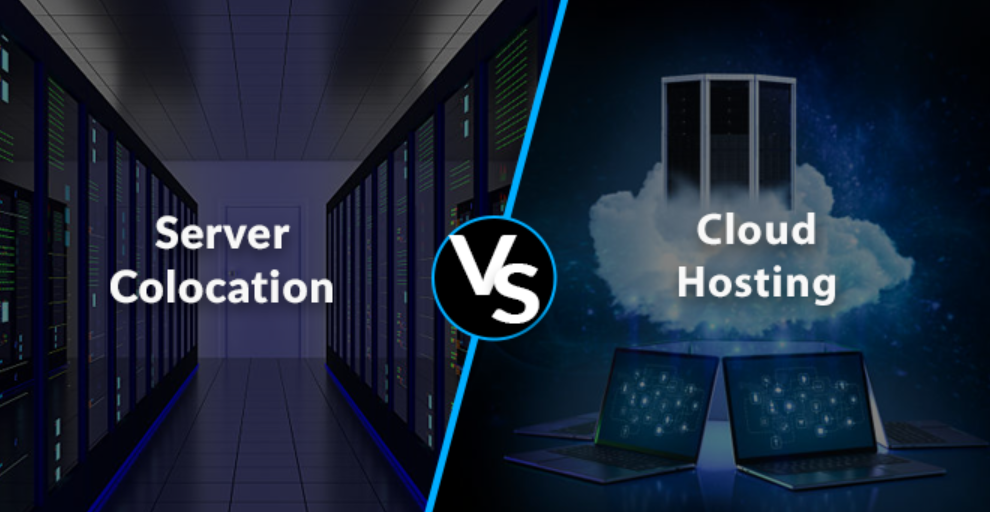
Colocation hosting vs Cloud Hosting: Which one is best for your Business in 2022?
Colocation hosting vs Cloud Hosting
In this day and age, when every business is trying to establish a foothold in the online world, websites and mobile applications have emerged as a potent tool to create positive word-of-mouth. And to power these applications, businesses require a reliable and stable IT infrastructure. The demand for efficient infrastructure has compelled many of these players to seek ways of outsourcing infrastructure management.
Outsourcing in this case allows companies to not only optimize their spending but also access an array of beneficial features, including top-notch security, round-the-clock support, and high uptime.
Out of the various options available to these businesses, two are highly sought after Colocation hosting vs Cloud Hosting
So, how do these two compare with each other and why should a business choose one over the other (or a mix of the two)? That’s what we are going to discuss in this post. Let’s find out.
Colocation Hosting
Many businesses tend to invest significantly in physical , hard drives, and other computing resources. But they are reluctant to install and run the equipment at their own premises. They are not ready to bear the cost of the real estate to place the hardware or of the power and cooling facilities to run them smoothly.
So, they end up housing their servers in a third-party data center for a fee. This hosting model, referred to as colocation, allows clients to access space for keeping servers as well as the amenities such as network, power, cooling, and security needed for the hassle-free running of these servers under one roof.
Pros and Cons of Colocation Hosting
Like any other hosting model, colocation too has its pros and cons. Let’s discuss these one by one.
Pros
Enhanced Connectivity: Colocation allows companies to take advantage of a large number of connectivity options and access a range of services under one roof. This would be difficult to implement in an in-house facility.
Power and Cooling: Colocation allows clients to access interrupted power supply owing to the presence of power-grids, generators, and battery back-ups. Also, world-class HVAC systems maintain optimum temperature and humidity levels by controlling the movement and distribution of air.
Security: Colocation centers deploy a range of security measures such as fenced perimeter, CCTV cameras, fire alarms, motion sensors, biometric authentication, rack locks, and armed manpower that help them maintain the highest levels of security standards.
Compliance: Many organizations need to adhere to rigorous compliance regulations regarding the storage and preservation of data such as HIPAA, PCI-DSS, SSAE 16, etc. Colocation data centers make sure such clients maintain complete control over their data.
Disaster Recovery and Backup: All leading colocation service providers offer robust disaster recovery (DR) solutions. So, even if a mishap occurs, their clients can resume operations within a short time.
Cons
We need to keep in mind that all colocation providers may not offer the requisite quality of service. If your colocation provider is not carrier-neutral, it may not offer you options when it comes to choosing an internet service provider (ISP).
In addition, if your service provider has a dismal uptime record, you will have to pay the price in the form of lost sales opportunities or reputational damage.
Cloud Hosting
Though colocation is a great fit for companies with their own infrastructure, it does not make sense for companies that haven’t invested in IT hardware so far.
Even the organizations that maintain their own network infrastructure may want their IT experts to spend their time more productively i.e. developing and implementing innovative ideas rather than resolving trivial server issues. The cloud can be a suitable solution in such a scenario.
Cloud hosting is similar to colocation in the sense that your data and applications are hosted in a third-party data center. But, in the cloud, the hardware doesn’t belong to you.
When you choose a cloud service, you migrate your data and applications to the virtualized servers of your service provider. Your provider manages the day-to-day operations of their cloud infrastructure; this frees up your IT specialists to focus on strategic work.
Pros and Cons of Cloud Hosting
Pros
Like colocation hosting, the cloud also offers the benefits of improved connectivity, power and cooling, security, compliance, and disaster recovery. There are, however, some additional advantages of using the cloud. These include:
Scalability: As clouds make use of a virtualized infrastructure, they are far more flexible than the traditional physical hardware. So, if you need to enhance the capacity for storing data or bolster your computing power for building a new application, you can easily ramp up by accessing additional resources from your service provider.
Flexibility: Being a virtualized platform, the cloud is incredibly flexible. Cloud services come with a pay-as-you-go pricing model, so you have to pay only for the resources you actually use.
Cons
One major drawback of shifting to the cloud is the loss of control. Though you can access the data and applications, you don’t own (or manage) the servers where these have been stored. For companies seeking visibility into their IT infrastructure, this may not be acceptable.
In addition, the server that hosts your data will most likely have data belonging to other customers also. While cloud service providers always create partitions between accounts, the risk of a breach can never be completely ruled out.
Colocation Hosting Costs vs Cloud Hosting Costs
Colocation involves a higher upfront expenditure when compared to a cloud-based solution. This is because the client has to purchase their hardware before placing them in a third-party data center in India. The very definition of colocation leads many of us into believing that cloud services are a more cost-effective option. This is not the case at all.
While cloud services are usually offered on a pay-as-you-go basis and you have to pay just for what you are using, the charges of a cloud service can become exorbitant very quickly.
Choosing colocation means you have to maintain and replace your hardware with time-something that needs to be planned beforehand. In a cloud service, on the other hand, all these aspects are managed by your service provider. If you are not prepared to handle the maintenance part on your own, the cloud may be a more convenient (though not economical) solution for you.
Colocation vs Cloud: Which way to go?
While colocation and cloud have some clear-cut differences, the two are not mutually exclusive options. Data center providers are increasingly focusing on creating customized solutions that integrate the most sought-after features of both services.
Security is an apparent concern with the cloud on account of its open nature. Though colocation fares better on the security front, it simply lacks the agility of the cloud. Many data centers in India have realized this dilemma and are coming up with hybrid cloud and multi-cloud deployments.
Hybrid clouds integrate private servers with public clouds, so clients can store sensitive data on private servers and leverage the public cloud platforms for hosting the rest of the data. Multi-clouds encompass multiple public cloud services, from different providers that cater to the different needs of a business.
So, all in all, while you may find a pure colocation or cloud solution suitable for your business, you always have the choice to combine the two in a manner that fulfills your precise needs. Many renowned data centers in India are devising solutions that integrate colocation and cloud and offer the best of each platform, all while alleviating their drawbacks.


0 thoughts on “Colocation hosting vs Cloud Hosting: Which one is best for your Business in 2022?”